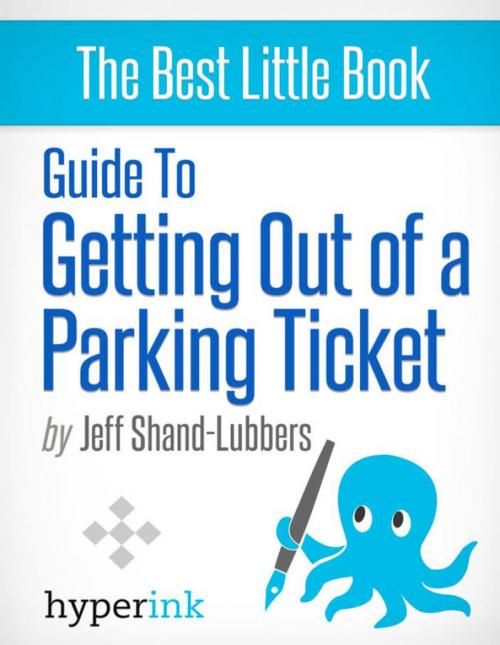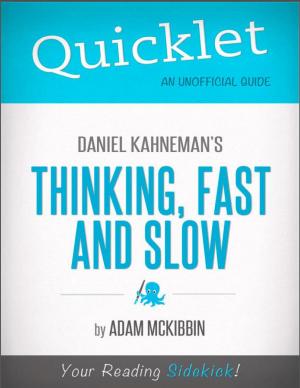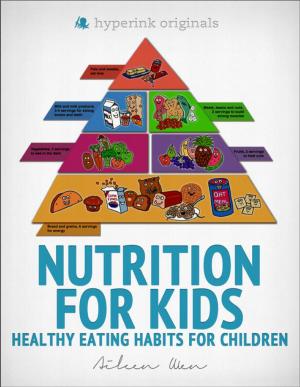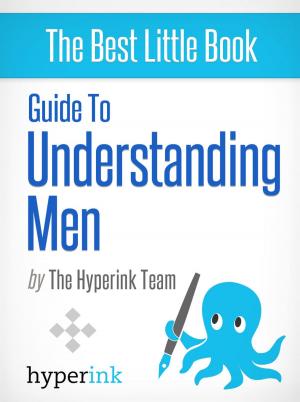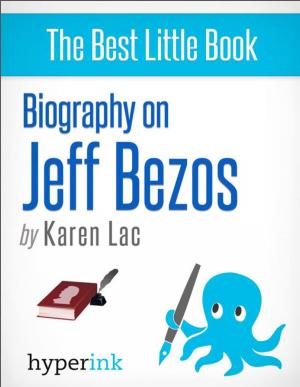How To Get Out of Any Parking Ticket
Nonfiction, Reference & Language, Reference, Guides & Handbooks| Author: | Jeff Shand-Lubbers | ISBN: | 9781484006849 |
| Publisher: | Hyperink | Publication: | February 8, 2012 |
| Imprint: | Hyperink | Language: | English |
| Author: | Jeff Shand-Lubbers |
| ISBN: | 9781484006849 |
| Publisher: | Hyperink |
| Publication: | February 8, 2012 |
| Imprint: | Hyperink |
| Language: | English |
ABOUT THE BOOK
The cost of a parking ticket is no laughing matter.
Particularly for those living in urban areas, parking ticket expenses can add up quickly and put a serious dent in one’s budget.
Additionally, recent studies have given support to anecdotal evidence that parking fees often increase substantially following poor economic times for cities and municipalities.
This can lead to sticker shock for someone who receives their first parking ticket in a number of years.
While in some instances it may be true that “You can’t fight City Hall,” it doesn’t mean that fighting a parking ticket is always a pointless endeavor.
For those willing to put in a little bit of effort in explaining why they don’t think they should have to pay it’s not unreasonable to expect an outcome that doesn’t end with forking over $100 or more.
Of course, getting out of parking tickets is downright difficult if your best argument is simply that you don’t want to pay.
If you parked illegally, chances are you will have to pay (though not always).
But if you truly feel you were in the right and the city was in the wrong, fighting a ticket can be a worthwhile and money-saving endeavor.
MEET THE AUTHOR
Scott Charles has over a decade’s worth of experience as a research analyst. Scott spent 11 years at a Fortune 500 company providing research and analytical services to marketing teams, product managers, R&D staff, and executives. His specialty is doing comprehensive deep dives to support ideation processes, identifying business opportunities, market analysis and business development.
EXCERPT FROM THE BOOK
Thomas Friedman’s object in The Lexus and the Olive Tree: Understanding Globalization is to provide a framework for understanding “globalization” as an international system. Globalization, according to Friedman, is the sum total of all the various economic interests of everybody in the world. These interests are not bound by national borders, or by any particular cultural barrier. The simple clarity of the Cold War (e.g., US vs. Soviet Union) has been replaced by something more complex.
Everybody is pro-globalization to the extent they benefit, and against globalization to the extent it damages their interests. The conflict therefore is about power: who has it, who wants it, and how much is it worth. Sometimes power in measured in money, sometimes in political or cultural control.
Friedman knows all this, and his narrative has a few well placed caveats.
The problem is in sorting out all the various dynamics. Friedman doesn’t actually set out to sort everything out, he attempts to define what is going on in the broadest sense.
Simply put, globalization can be understood as the combination of advanced communications technology and supply chain management. The ideas here are nothing new: the telegraph and the Erie Canal had the same impact. A few years later, the telephone and the Panama Canal had an even bigger impact.
What’s new this time around is the enormous interconnectedness of it all. The human dynamic tensions have not changed, but the speed at which the interactions happen, and the scope, is way larger. And in this new world, individuals have more power.
Because the Internet changes everything.
Buy a copy to keep reading!
ABOUT THE BOOK
The cost of a parking ticket is no laughing matter.
Particularly for those living in urban areas, parking ticket expenses can add up quickly and put a serious dent in one’s budget.
Additionally, recent studies have given support to anecdotal evidence that parking fees often increase substantially following poor economic times for cities and municipalities.
This can lead to sticker shock for someone who receives their first parking ticket in a number of years.
While in some instances it may be true that “You can’t fight City Hall,” it doesn’t mean that fighting a parking ticket is always a pointless endeavor.
For those willing to put in a little bit of effort in explaining why they don’t think they should have to pay it’s not unreasonable to expect an outcome that doesn’t end with forking over $100 or more.
Of course, getting out of parking tickets is downright difficult if your best argument is simply that you don’t want to pay.
If you parked illegally, chances are you will have to pay (though not always).
But if you truly feel you were in the right and the city was in the wrong, fighting a ticket can be a worthwhile and money-saving endeavor.
MEET THE AUTHOR
Scott Charles has over a decade’s worth of experience as a research analyst. Scott spent 11 years at a Fortune 500 company providing research and analytical services to marketing teams, product managers, R&D staff, and executives. His specialty is doing comprehensive deep dives to support ideation processes, identifying business opportunities, market analysis and business development.
EXCERPT FROM THE BOOK
Thomas Friedman’s object in The Lexus and the Olive Tree: Understanding Globalization is to provide a framework for understanding “globalization” as an international system. Globalization, according to Friedman, is the sum total of all the various economic interests of everybody in the world. These interests are not bound by national borders, or by any particular cultural barrier. The simple clarity of the Cold War (e.g., US vs. Soviet Union) has been replaced by something more complex.
Everybody is pro-globalization to the extent they benefit, and against globalization to the extent it damages their interests. The conflict therefore is about power: who has it, who wants it, and how much is it worth. Sometimes power in measured in money, sometimes in political or cultural control.
Friedman knows all this, and his narrative has a few well placed caveats.
The problem is in sorting out all the various dynamics. Friedman doesn’t actually set out to sort everything out, he attempts to define what is going on in the broadest sense.
Simply put, globalization can be understood as the combination of advanced communications technology and supply chain management. The ideas here are nothing new: the telegraph and the Erie Canal had the same impact. A few years later, the telephone and the Panama Canal had an even bigger impact.
What’s new this time around is the enormous interconnectedness of it all. The human dynamic tensions have not changed, but the speed at which the interactions happen, and the scope, is way larger. And in this new world, individuals have more power.
Because the Internet changes everything.
Buy a copy to keep reading!
